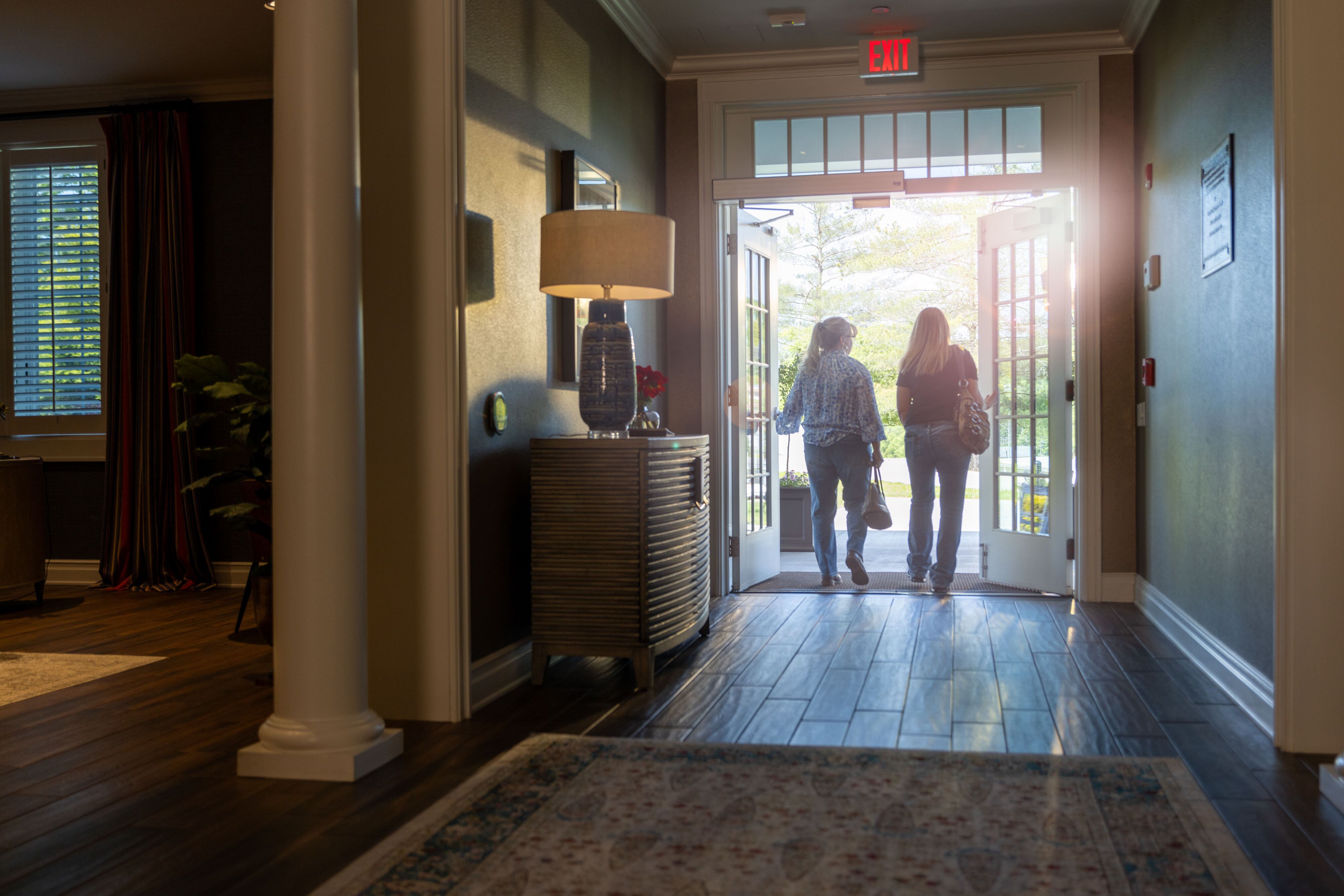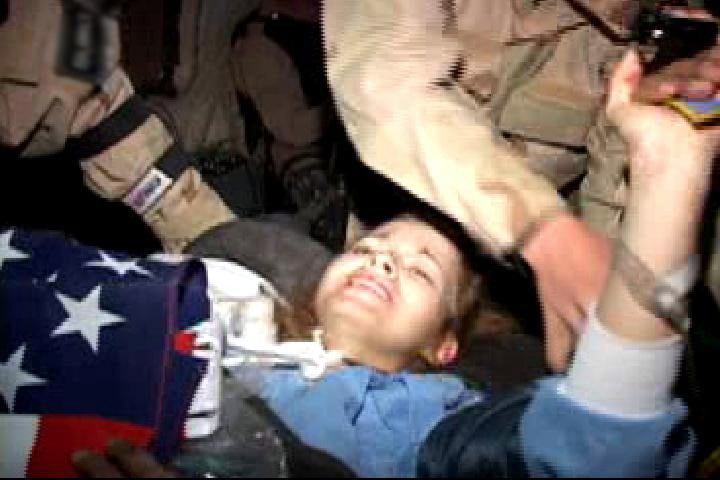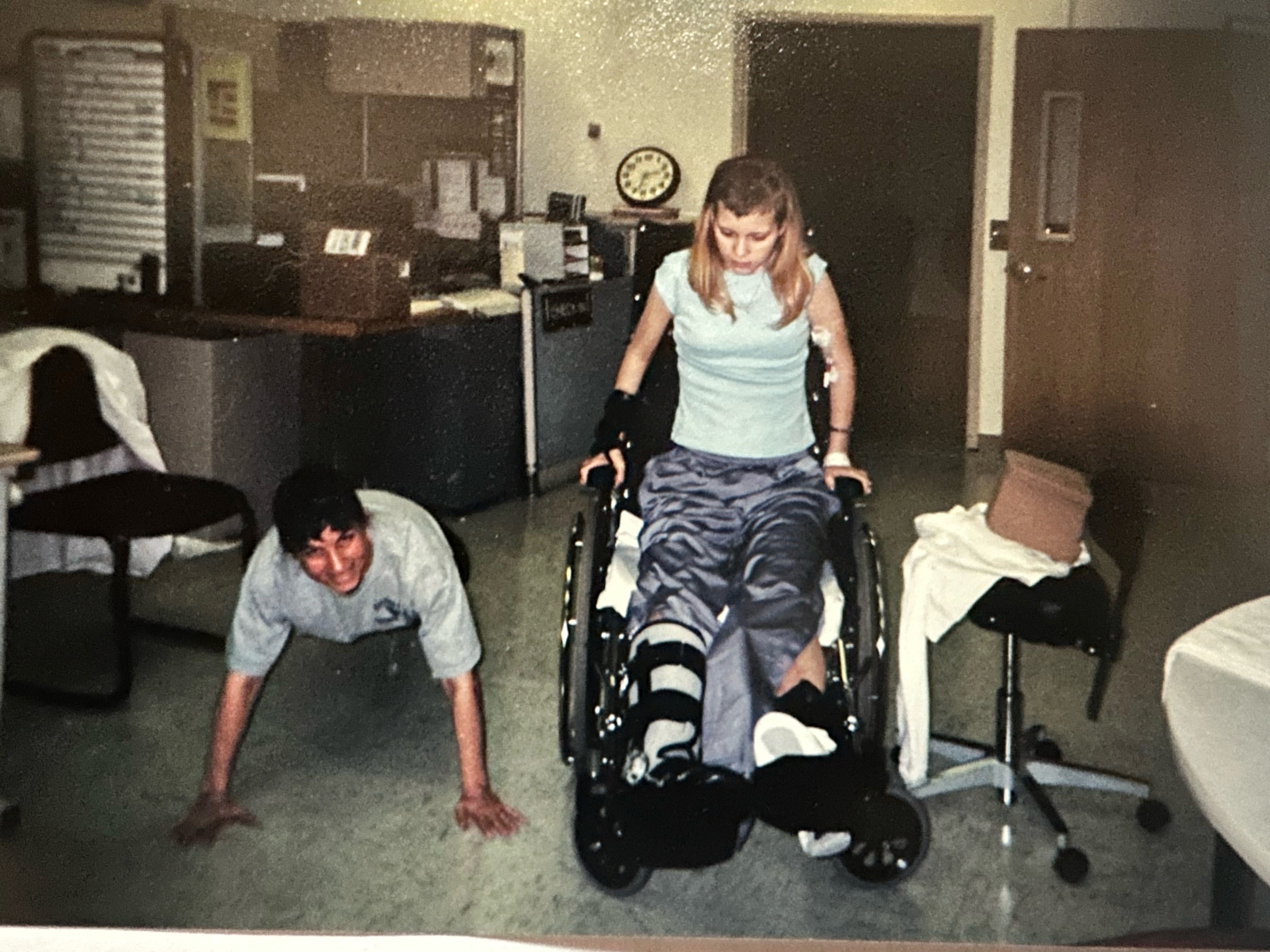Army Pfc. Jessica Lynch suffered horrific injuries during an ambush, capture, and then captivity as a prisoner of war during the 2003 ground invasion of Iraq. The situation was frightening for the young service member, but it was also gut-wrenching for her loving family 6,000 miles away in West Virginia. Fisher House was there for the Lynch family as they traveled to Germany and then Washington, D.C. to support their wounded soldier.

Deidre “Dee” Lynch, Jessica’s mom, and Greg Lynch, her father, first knew that something was wrong when they turned on the news.
“They were saying that a unit from Fort Bliss had been captured and some were missing,” Dee said. “We didn’t know that it was our daughter for sure, but you know, a parent’s gut instinct. You think the worst, you think, ‘That’s my daughter.’”
Soon, their terrible suspicions proved true. Jessica’s family waited, tensely, until a special operations team rescued her from a hospital in Iraq. She remembered how the first person to reach her in the hospital greeted her.

“It makes me very emotional,” Jessica said, “but he handed me an American flag off his uniform and said, ‘We’re Americans. We’re here to take you home.’ And I remember replying with,
‘Yeah, I’m an American soldier, too.’ And they were able to quickly whisk me out of there.”
Jessica suffered a lot of injuries in the ambush and malnutrition in captivity. The Army transported her to Landstuhl Regional Medical Center in Germany. Her parents were able to meet her there and stayed at Fisher House so they could be near Jessica.

“Just knowing that I was going to be able to have my family there for me was a huge relief,” Jessica said.
“It was a huge part of my recovery,” she said. “And it is for most veterans that come back and just need their loved ones, need to see familiar faces, need to see people that they recognize and love surrounding them in that time of need.”
Dee and Greg found their own needs taken care of at the house just steps from the hospital.
“We didn’t know about Fisher House,” Dee said. “We had no clue where we were going to stay, what we would be doing. We were just focusing on Jessica. We didn’t even have coats. Fisher House even found coats for us, because of course it was warm where we left, but when we got to Germany, it was cold.”
“I think it helped her healing because she knew that we were close,” Dee said. “She knew and she didn’t have to worry about, ‘Hey, where’s mom and dad staying?’ She knew where we were at, that we were right there if she needed us.”
Dee made Jessica’s favorite foods for her whenever she could, trying to help tempt her to eat as her body healed from malnutrition. After they transferred to Walter Reed Army Medical Center in Washington, D.C., Jessica’s parents had to leave for a short while to care for their youngest child in West Virginia, and house staff stepped in.

“His name was Peter Anderson, and this was when we were at Walter Reed. He just took us under his wing and, when we weren’t there to fix Jessica’s breakfast, he fixed it for her…he fixed her Coco Wheats just the way she wanted them, took them to her every morning.”
“We met amazing people. From the person that came in and mopped the floors to the person that came in and stocked the kitchen, you know, everybody was helpful,” she said. “Everybody wanted to do their part.”
Jessica recovered from the worst of her injuries, separated from the Army, and is now a teacher in West Virginia. She continues to receive medical care and attend physical therapy because of the injuries sustained more than 20 years ago. Her mom hopes that someone can always be there to support her.

“If Jessica needed long-term care 20 years from now, I would hope that there’s a Fisher House beside the facility so that we could be there, or her family, or her daughter could be there.”





